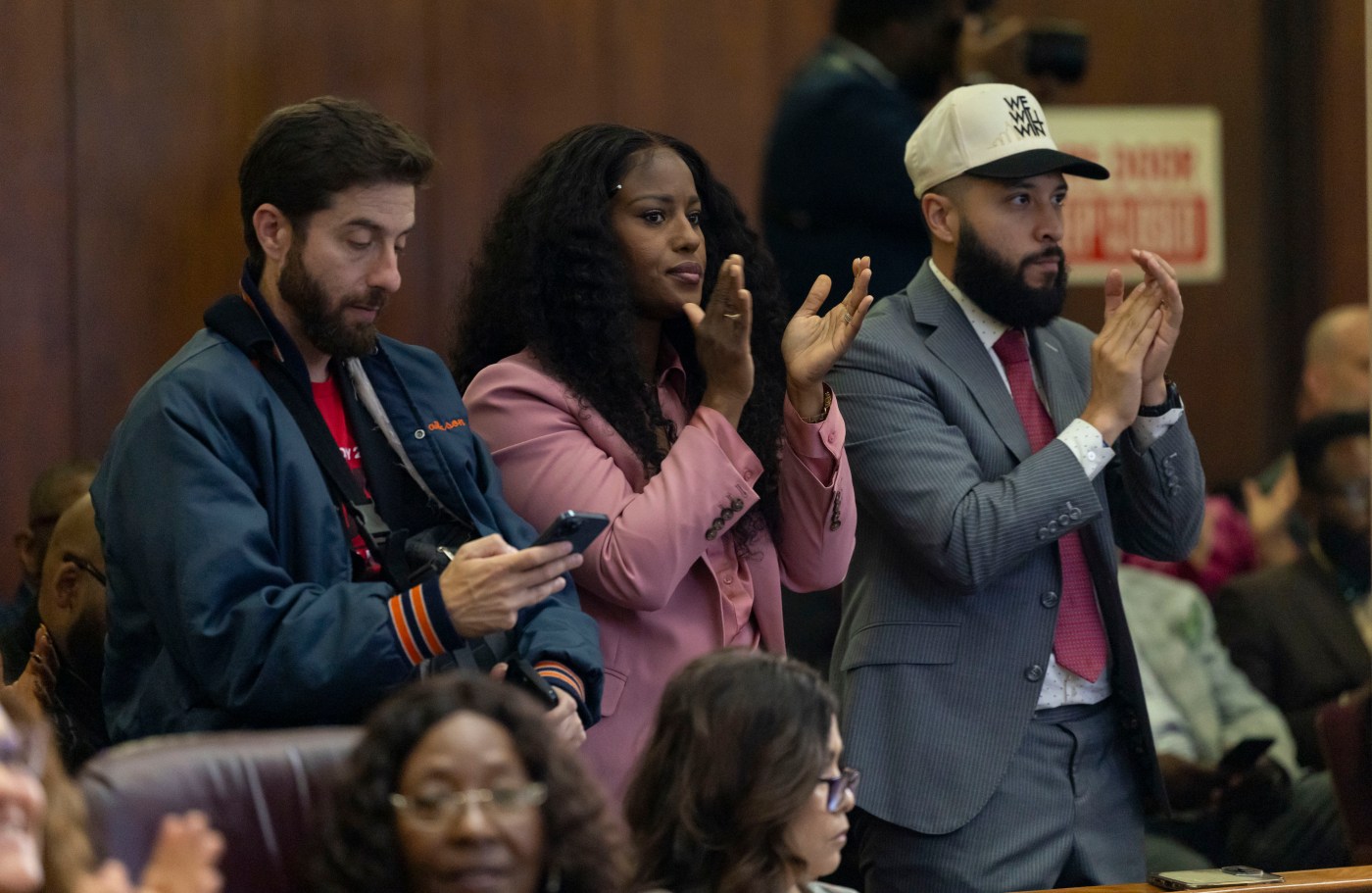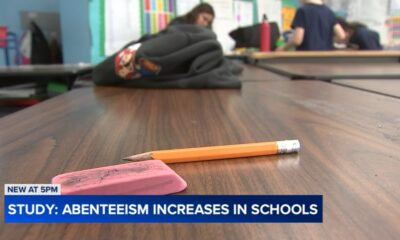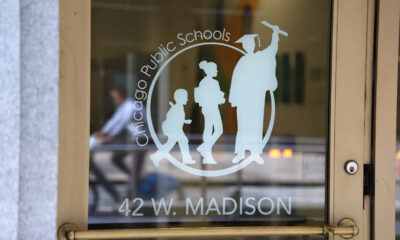Education
Chicago Public Schools Set to Receive $522 Million Surplus Boost

Mayor Brandon Johnson has proposed a budget that could allocate a historic $522 million to Chicago Public Schools (CPS) for the upcoming academic year. This funding is part of a broader plan to utilize a significant surplus from Tax Increment Financing (TIF) districts, marking a rare moment of financial relief for the beleaguered school district.
The draft budget, unveiled on Thursday, suggests that the city will draw $1 billion from its TIF districts. More than half of this amount is earmarked for CPS, which includes $379 million that the district anticipated and an additional $175 million to cover municipal pension obligations. This infusion of funds allows CPS to adhere to its spending plan while avoiding deeper cuts to classroom resources.
TIF funds are generated from designated areas around the city, intended for local development projects. When these districts expire or are deemed to have surplus funds, the money is distributed among local government entities. This year, CPS is set to receive approximately 52% of the surplus, while the city will obtain 23%. The potential allocation of $522 million represents a significant lifeline for the district, which has been facing fiscal challenges in recent years.
Prior to the Chicago Board of Education’s approval of its $10.25 billion budget in late August, school officials secured assurances from the City Council that a declared TIF surplus would allocate at least $379 million to CPS. Despite initial uncertainties regarding the actual surplus amount, the funding has now been confirmed, averting the prospect of mid-year budget cuts.
CPS has also agreed to assist the city with the $175 million pension payment for non-teaching employees, contingent upon additional revenue. This payment has sparked debate, as over half of the recipients belong to the Municipal Employees’ Annuity and Benefit Fund. Historically, the city was responsible for this cost, but the financial burden has shifted to CPS since 2020. This ongoing political struggle contributed to the resignation of the entire school board last year and the dismissal of former CEO Pedro Martinez.
At a press conference on Thursday, Chicago Board of Education member Michilla Blaise praised the budget proposal, attributing its success to direct negotiations between board members and the mayor’s office. “This commitment prevents any mid-year cuts and allows us to maintain stability in our classrooms,” Blaise stated. She emphasized that the funding supports essential services provided by non-teaching personnel who play critical roles in the district.
The anticipated TIF revenue also compensates for an $8 million federal grant that was canceled after the U.S. Department of Education’s Office for Civil Rights withheld funding due to allegations against CPS regarding its Black Student Success Program. Blaise highlighted that the additional revenue helps to sustain inclusivity initiatives facing federal scrutiny.
While the proposal represents a significant victory for CPS, the final budget is still subject to approval by the City Council, which must act by December 31. Although many aldermen have expressed support for the TIF surplus, concerns remain about potential objections, as the funds are typically intended to drive redevelopment in their respective wards.
Educational nonprofit Kids First Chicago commended the city for the proposed funding increase, while urging caution regarding any intergovernmental agreements that would commit funds before the final surplus amount is confirmed. Chief of Policy Hal Woods noted that while there is cause for celebration, negotiations will determine the final TIF surplus allocation.
Some budget watchdogs, such as the Civic Federation, have cautioned that reliance on TIF surplus funds could pose a long-term risk to the city’s financial stability. Historically, Chicago mayors have increasingly declared larger surpluses to address budget shortfalls. In 2014, the city reported a TIF surplus of $65 million, with CPS receiving merely $36 million.
As CPS navigates its ongoing financial issues, it faces approximately $9.1 billion in long-term debt and $450 million in short-term debt. Additionally, the district’s bond rating is classified as “junk” by three out of four rating agencies, making future borrowing more expensive. The budgetary pressures will intensify as the district implements a new contract with the Chicago Teachers Union, which will incur costs of $1.5 billion over the next four years.
The proposed budget by Mayor Johnson offers a glimmer of hope for CPS as it strives to stabilize its financial situation and ensure continuity in its educational services.
-

 Science1 month ago
Science1 month agoNostradamus’ 2026 Predictions: Star Death and Dark Events Loom
-

 Technology2 months ago
Technology2 months agoOpenAI to Implement Age Verification for ChatGPT by December 2025
-

 Technology7 months ago
Technology7 months agoDiscover the Top 10 Calorie Counting Apps of 2025
-

 Health5 months ago
Health5 months agoBella Hadid Shares Health Update After Treatment for Lyme Disease
-

 Health5 months ago
Health5 months agoAnalysts Project Stronger Growth for Apple’s iPhone 17 Lineup
-

 Technology5 months ago
Technology5 months agoElectric Moto Influencer Surronster Arrested in Tijuana
-

 Education5 months ago
Education5 months agoHarvard Secures Court Victory Over Federal Funding Cuts
-

 Health5 months ago
Health5 months agoErin Bates Shares Recovery Update Following Sepsis Complications
-

 Technology6 months ago
Technology6 months agoDiscover How to Reverse Image Search Using ChatGPT Effortlessly
-

 Technology7 months ago
Technology7 months agoMeta Initiates $60B AI Data Center Expansion, Starting in Ohio
-

 Science4 months ago
Science4 months agoStarship V3 Set for 2026 Launch After Successful Final Test of Version 2
-

 Technology7 months ago
Technology7 months agoRecovering a Suspended TikTok Account: A Step-by-Step Guide




















